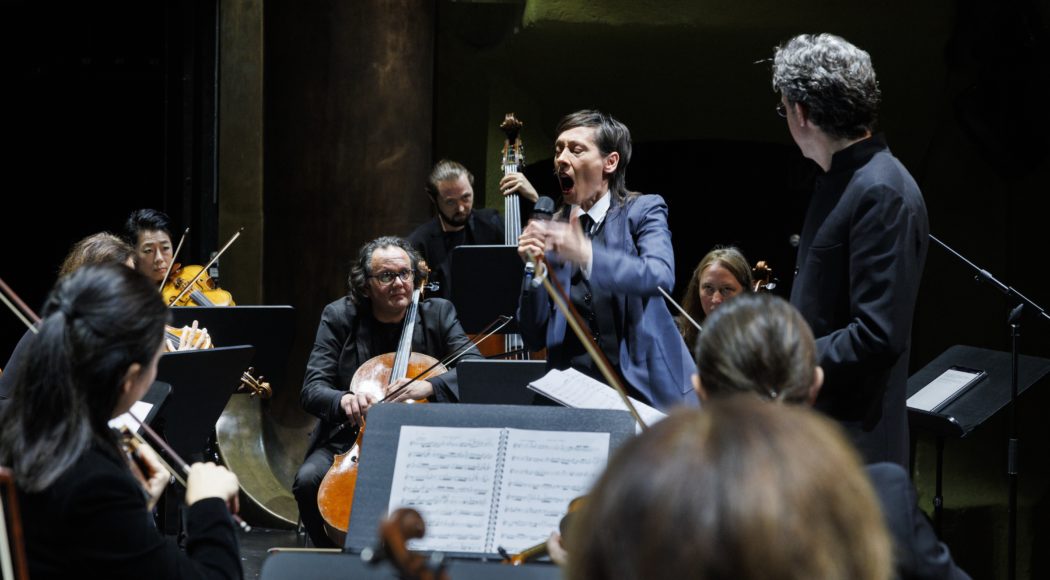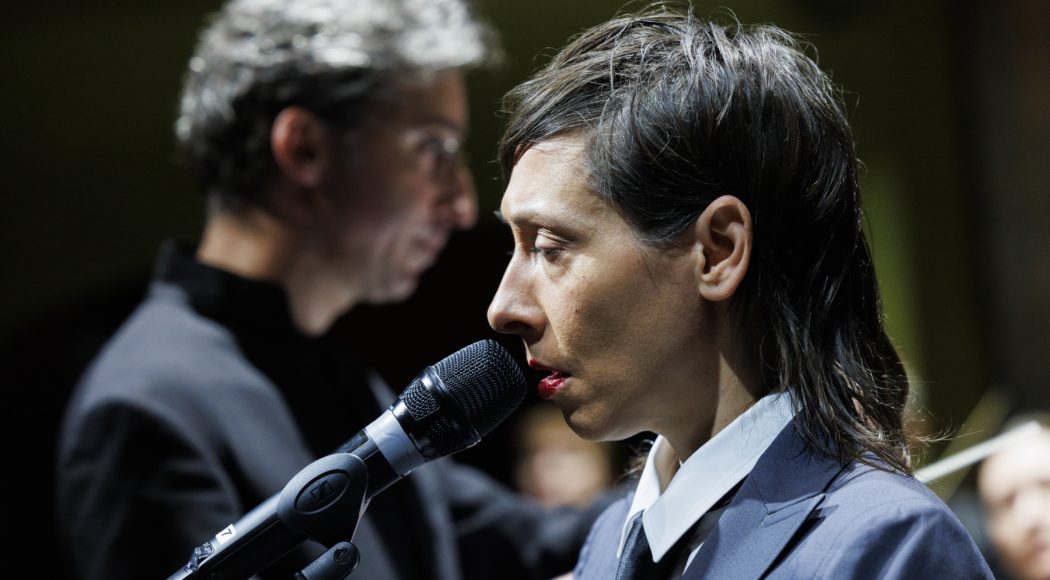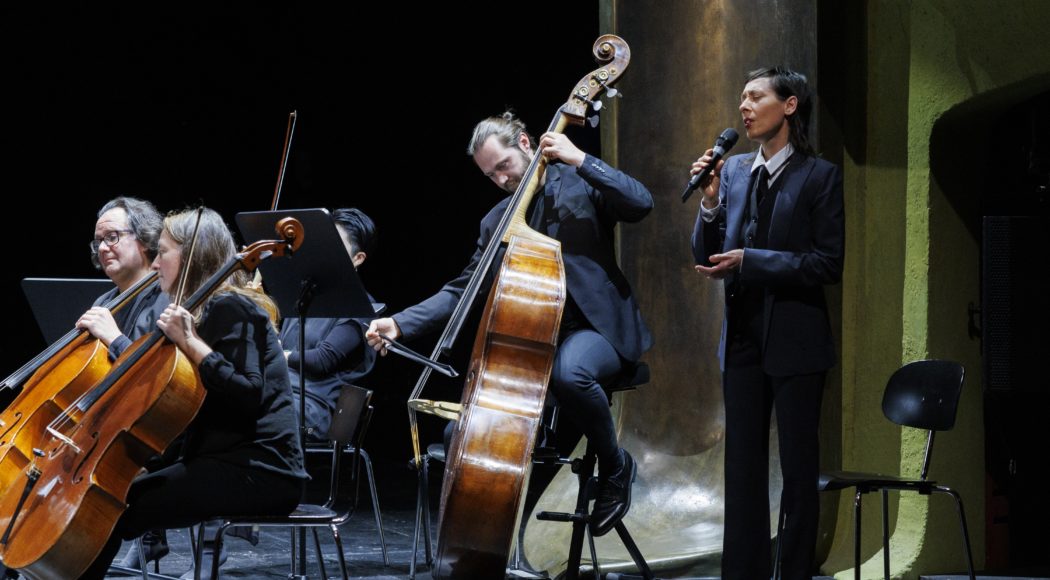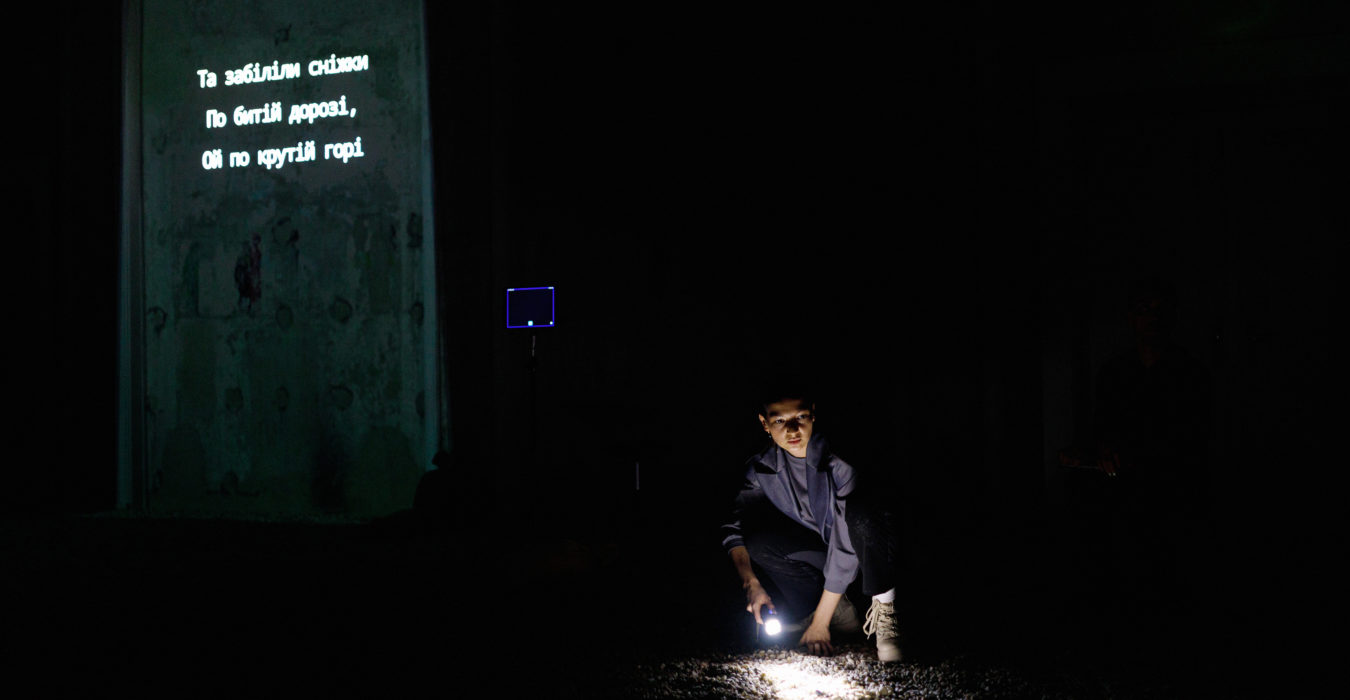Koffler’s Fate: The Goldberg-Variation
Jewish Chamber Orchestra Munich
Please note: Three-day strike in Dresden public transport from 29.02. to 02.03.2024. More information at dvb.de.
Together with the author Stella Leder, the Jewish Chamber Orchestra Munich weaves the life and work of Józef Koffler with a questioning of the German culture of remembrance. Largely forgotten in public memory, his music can now to be heard again . Koffler’s String Trio op. 10 will be performed in an arrangement for chamber orchestra as well as his arrangement of Bach’s Goldberg Variations. In dialog with the music, the actress and singer Jelena Kuljić will speak a text by Stella Leder, which deals with Koffler’s life and associatively with the topic of memory from today’s perspective.
Józef Koffler was born in Stryj (Poland, now Ukraine) in 1896. He studied composition in Vienna and enjoyed success as a composer. At the age of 32, he held the only professorship for atonal composition in Poland in Lviv. After the Wehrmacht invaded eastern Poland in 1941, Koffler was arrested with his wife and young son and taken to the Wieliczka ghetto. After the ghetto was dissolved in 1943, he hid with his wife and son in various places, but was tracked down by the Gestapo in 1944 and shot together with his family on the outskirts of an unknown village.
Duration: ca. 1 h 20 min.
Since its foundation, the JEWISH CHAMBER ORCHESTRA MUNICH has evolved through its artistic director Daniel Grossmann developed a unique profile in 2005: It sees itself as a contemporary Jewish voice, is internationally present on a wide range of concert stages and, with ever new alliances and formats, is taking unusual paths to make contemporary Jewish culture alive and audible, tangible and visible for everyone – an internationally relevant concern that the orchestra carries out into the world as a matter of course. In addition to tours to Israel, Eastern Europe, Scandinavia, North America and China, among others, the JCOM appears as an ambassador of Jewish culture in guest performances within Germany. It is an orchestra for all nations and religions. His musicians come from over twenty countries, are Jewish and non-Jewish and mostly live in Germany.
Jelena Kuljić, born in Serbia in 1976, graduated in jazz singing from the Jazz Institute Berlin in 2008. She has performed in numerous theater productions, including at the Volksbühne Berlin, Schaubühne Berlin, Burgtheater and Thalia Theater, and has worked closely with director David Marton and choreographer Constanza Macras. Jelena Kuljić has been a permanent ensemble member of the Münchner Kammerspiele since the 2015/16 season. As a musician, she plays in various music projects, including KUU! (ACTmusic), Z-Country Paradise (Z-Paradise Records), Fasil (ECM), and performs at international jazz festivals such as the Moers Festival, Elbjazz, Copenhagen Jazzfestival, NatjazzBergen etc. Her band KUU! was nominated for the German Jazz Award 2021. In 2022 Kuljić was nominated for the German Jazz Award as ‘Vocal of the Year’ and won the JTI Award.
Stella Leder is an author and dramaturge. She studied art history and German studies, was on the board of the Zurückgeben Foundation, worked for the Amadeu Antonio Foundation and in the independent theater scene. In 2015, she co-founded the Institute for New Social Sculpture, an association of Jewish directors, dramaturges, authors and artists who are critical of anti-Semitism. The institute develops performances, installations and exhibitions. Under the direction of Stella Leder, it has become a hub between artists critical of anti-Semitism and Jewish artists on the one hand, and theaters and museums on the other. In 2021, Leder’s books Meine Mutter, der Mann im Garten und die Rechten (Ullstein) and Über jeden Verdacht erhaben? Anti-Semitism in Art and Culture (Hentrich & Hentrich).
Martín Valdés-Stauber founded the artistic research area Memory as Work on the Present in 2021, which he has headed ever since. From 2017 to 2023, he was a dramaturge on the artistic management team of the Münchner Kammerspiele. He has been a dramaturge at the Schaubühne Berlin since 2023. He previously studied sociology and economics in Munich, Friedrichshafen, Berkeley and Cambridge. Martín Valdés-Stauber has been an honorary “Commissioner for Open Society” in his home town of Kaufbeuren since 2020. His play Time Busters on the culture of remembrance in a post-migrant society was invited to the national meeting of theater youth clubs. Since 2018, he has been researching the biographies of those persecuted under the Nazi regime among the Kammerspiele’s employees in the long-term project Schicksale together with Janne and Klaus Weinzierl.
For his entire professional life, Daniel Grossmann has been concerned with the question of how Jewish culture can take its place in the collective social consciousness and how he can contribute to intercultural dialog by communicating this culture. Based on this question, the conductor founded the Jewish Chamber Orchestra Munich (initially the Orchestra Jakobsplatz Munich) in 2005, which has since developed under his direction into an internationally acclaimed, professional orchestra at a high musical level and also stands out in Munich’s diverse cultural life with its extraordinary projects. Daniel Grossmann always focuses on projects that have something to do with today, here and now. He skillfully combines the music of past eras with contemporary forms of performance and turns the JCOM concerts into impressive experiences for the audience. Of course, he also deals with ‘forgotten’ Jewish composers, which he presents as an expressive speaker in moderated concerts.
Conductor: Daniel Grossmann
Text: Stella Leder
Dramaturgy: Martin Valdés-Stauber
Solist: Jelena Kuljić (Schauspielerin)
Works by:
Józef Koffler (Arrangement for chamber orchestra by Nicholas Hersh)
Johann Sebastian Bach (Arrangement for chamber orchestra by Józef Koffler)
A piece developed in collaboration between Stella Leder, Martin Valdés-Stauber and Daniel Grossmann.







